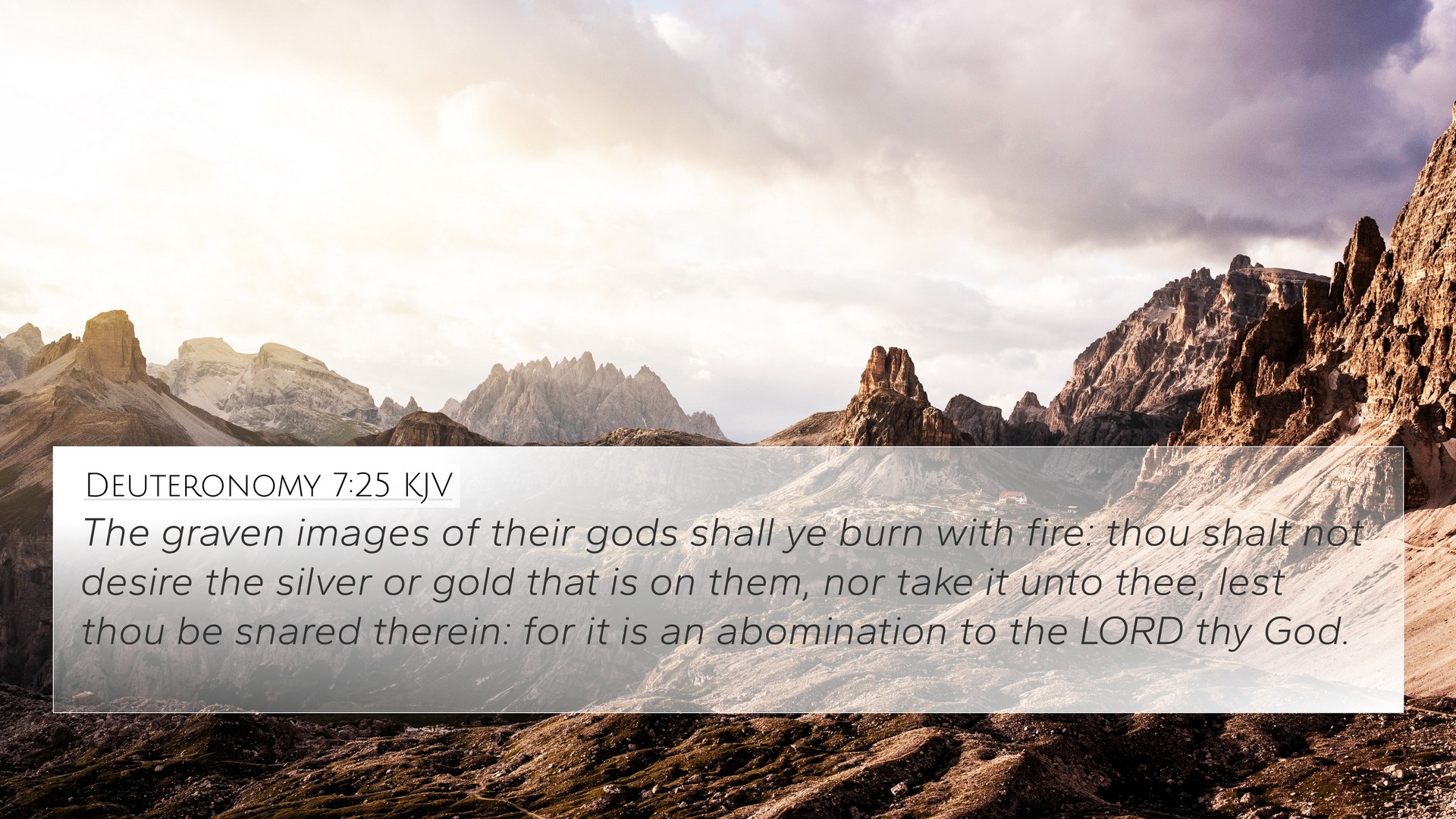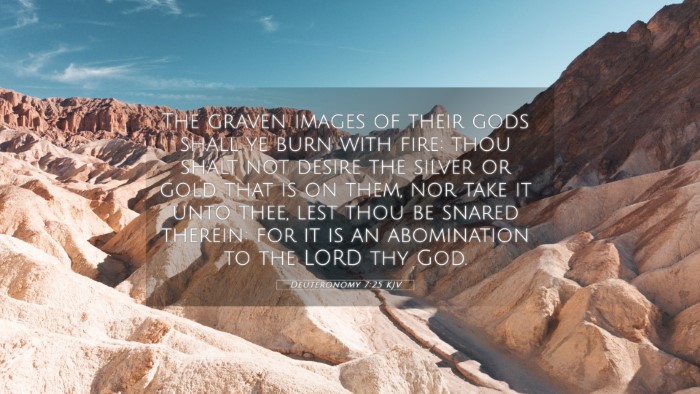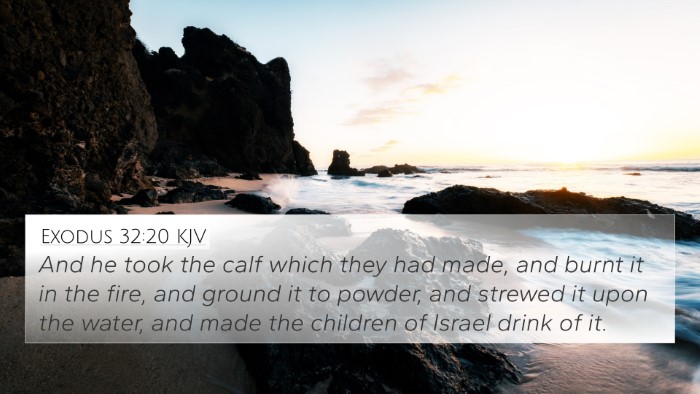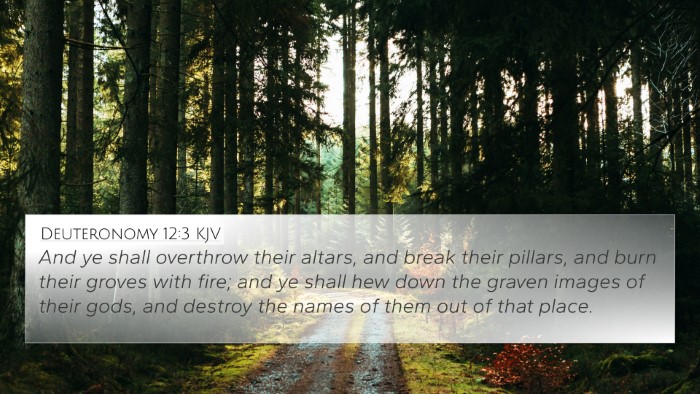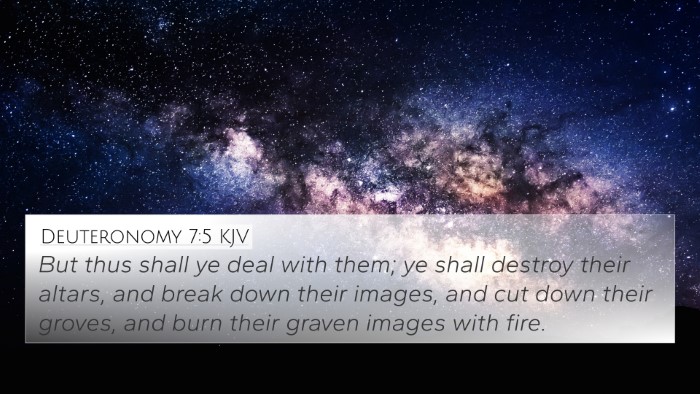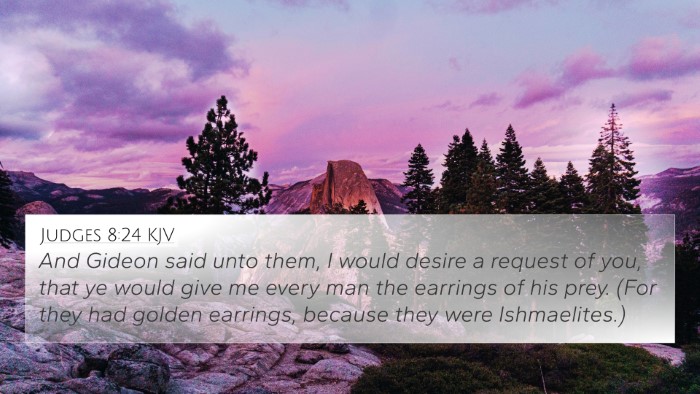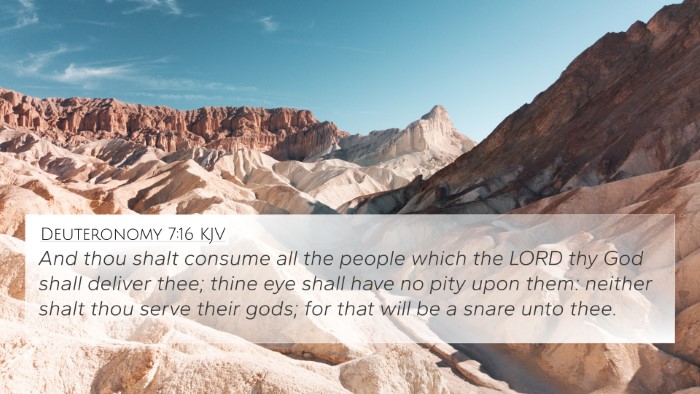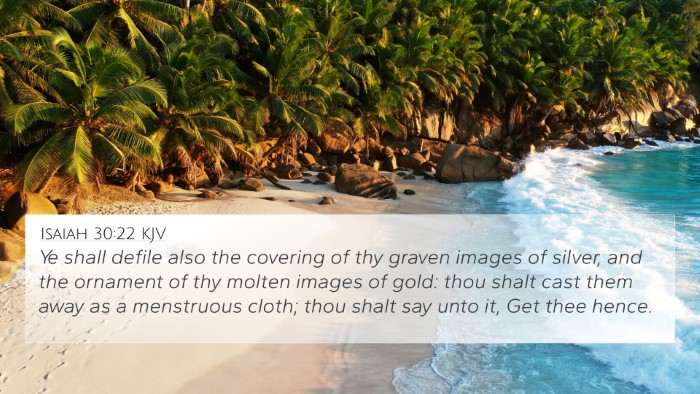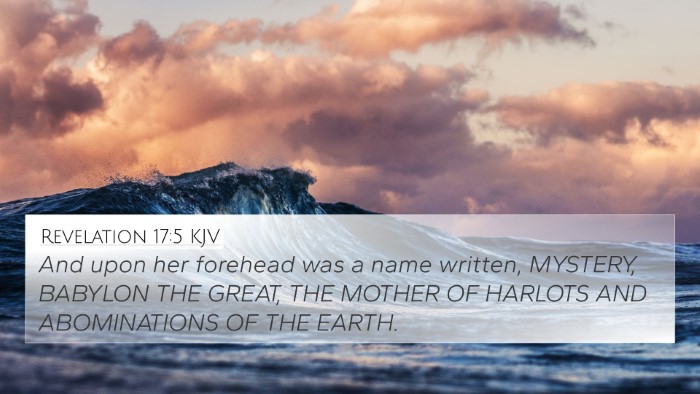Understanding Deuteronomy 7:25
Deuteronomy 7:25 states, "The graven images of their gods shall ye burn with fire: thou shalt not desire the silver or gold that is on them, nor take it unto thee, lest thou be snared therein: for it is an abomination to the Lord thy God." This verse addresses the proper attitude towards the idolatrous practices of surrounding nations and emphasizes the rejection of any form of false worship.
Summary of Commentary Insights
This verse is pivotal in understanding the Israelite's relationship with the surrounding pagan nations and their idol worship. The following points are derived from public domain commentaries:
- Matthew Henry: He emphasizes that the destruction of graven images is not merely about physical removal but also represents a spiritual separation from idolatry. The Israelites are warned against the allure of wealth and beauty associated with idols, which could lead to a snare of sin.
- Albert Barnes: Barnes elucidates that this command serves as a warning. He stresses the importance of not being enticed by the outward appearances of idol worship but instead recognizing it as an abomination according to God. He interprets the actions against idols as acts of loyalty to God.
- Adam Clarke: Clarke interprets the emphasis on fire for the destruction of idols as an indication of their complete eradication. He highlights that the text not only forbids the taking of gold and silver from idols but extends to a broader lesson against coveting material wealth associated with idolatrous practices.
Cross-Referencing Biblical Texts
For a deeper understanding of Deuteronomy 7:25, we can explore several important cross-references that highlight similar themes:
- Exodus 20:4-5: This passage outlines the prohibition against making graven images and worshiping them.
- Leviticus 19:4: It warns against turning to idols or making molten gods, reinforcing the sanctity of devotion to God.
- Deuteronomy 12:3: This verse discusses the destruction of pagan places of worship, which complements the directive in 7:25.
- 1 John 5:21: The New Testament echoes the sentiment of guarding against idolatry, advising believers to keep away from idols.
- Psalm 97:7: This psalm speaks to the futility of worshipping false gods and serves as a reminder for exclusive devotion to the one true God.
- Matthew 6:24: Jesus teaches that one cannot serve both God and wealth, linking material entrapment to spiritual unfaithfulness.
- Isaiah 44:9-20: This passage critically examines the creation of idols and the foolishness involved in idolatry.
Thematic Connections Between Bible Verses
Deuteronomy 7:25 allows for a comparative bible verse analysis that reveals key themes, providing a framework to explore interconnected biblical concepts:
- Idolatry and its Condemnation: Numerous verses throughout the Bible tackle the subject of idolatry, reinforcing God’s disdain for it.
- Materialism vs. Spiritual Devotion: The connection between wealth and worship offers substantial thematic insight concerning loyalty to God over material gain.
- The Call for Purity: The command to burn idols underscores the recurring biblical theme of maintaining purity in worship and community.
Conclusion
In summary, Deuteronomy 7:25 serves as a powerful reminder of God's command to reject idolatry in all its forms, emphasizing complete devotion to Him. By cross-referencing this verse with others, we gain a richer understanding of biblical principles concerning worship, allegiance, and the dangers that come with associating with materialism and idolatrous practices. Using tools for Bible cross-referencing, believers can identify connections, explore thematic associations and achieve a deeper comprehension of scripture.
Additional Resources for Study
If you're interested in delving further into cross-referencing biblical texts, consider utilizing a bible concordance or a bible cross-reference guide to uncover more related scriptures. These resources are instrumental in facilitating links between various Bible verses and enhancing your biblical study experience.
